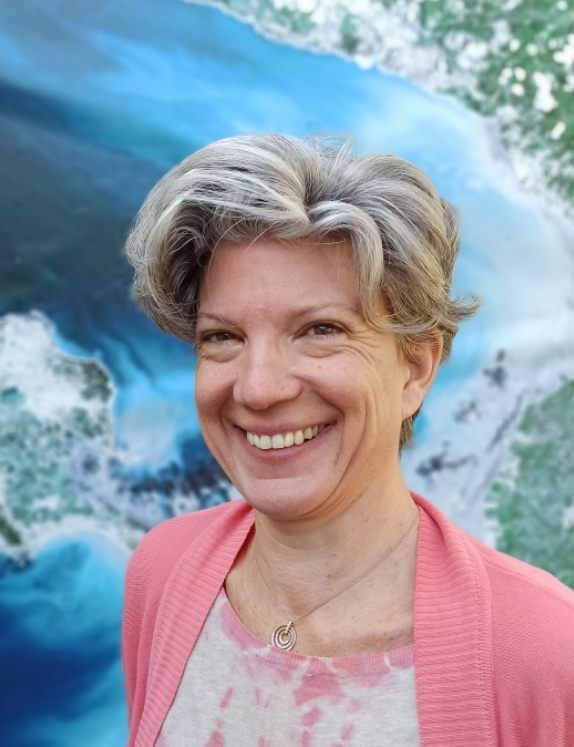
Personnel de l'université
Vona MELEDER-TARD
Professor PI of the Horizon Europe project RewriteCoordonnées
Batiment ISOMer 2, rue de la Houssinière 44322 Nantes cedex 3
- Tél
- 0251125656 (n° interne : 455656)
- Vona.Meleder@univ-nantes.fr
- Site internet
- https://linktr.ee/VonaMeleder
Discipline(s) enseignée(s)
Thèmes de recherche
I am currently the PI of the Horizon-Europe project Rewrite (2023-2028) for “Rewilding and restoration of intertidal sediment ecosystems for Carbon sequestration, climate adaptation and biodiversity support.” Rewrite ambition is to expand innovative approaches and nature-based solutions for rewilding seascapes constituted by intertidal soft sediment, bridging biodiversity conservation, climate adaptation and social expectations. This ambition is served by an impressively interdisciplinary consortium (25 partners from the academic and private sectors, representing 8 European tidal coastal states, as well as the UK, Canada and the USA) with recognized expertise on the climate-biodiversity nexus, fostering synergies among disciplines such as Social Sciences and Humanities, natural sciences and resources, and ecosystems management.
Stay tuned: https://rewriteproject.eu/
Activités / CV
Outreach:
48 articles, H factor: 25
Ongoing projects as PI, Co-PI or WP leader
- 2023-2027-REWRITE (REWilding and Restoration of InterTidal sediment Ecosystems for carbon sequestration, climate adaptation and biodiversity support) ; HORIZON-CL5-2022-D1-02-05.
- 2023 - 2027 - CABESTAN - The carbon cycle at the land-sea interface in the context of tidal zones and wetlands of the Atlantic and Channel coasts ; PEPR FairCarboN (PIA4)
- 2023-2027 - CarboNium - CarboN dynamic in the terrestrial- aquatic continuum ; PEPR FairCarboN (PIA4)
- 2021-2022 Sabbatical at University of California, Berkeley. Mapping coastal intertidal ecosystem primary production: coupling remote sensing and atmospheric eddy covariance. France-Berkeley Fund
- 2021-2023 Biofilm. Culture en biofilm et approche écophysiologique pour l’optimisation de la production lipidique de souches de diatomées benthiques ligériennes. Région Pays de la Loire.
2022-2023 Publications:
- 2023 – Hubas, C., Gaubert-Boussarie, J., D'Hondt, A-S., Jesus, B., Lamy, D., Méléder, V., Prins, A., Rosa, P., Stock, W. & Sabbe, K. Identification of microbial exopolymer producers in sandy and muddy intertidal sediments by compound-specific isotope analysis. bioRxiv 2022.12.02.516908; doi: https://doi.org/10.1101/2022.12.02.516908
- 2023 – Jesus, B., Jauffrais, T., Trampe, E., Méléder, V., Ribeiro, L., Bernhard, J. & Kühl, M. Microscale imaging sheds light on species-specific strategies for photo-regulation and photo-acclimation of microphytobenthic diatoms. Environmental Microbiology. 1–17. Available from: https://doi.org/10.1111/1462-2920.16499
- 2022 Brunier, G., Oiry, S., Lachaussée, N., Barillé, L., Le Fouest, V. & Méléder V. A machine learning approach to intertidal mudflat mapping combining multispectral reflectance and geomorphology from UAV-based monitoring. Remote Sensing, 14(22), 5857
- 2022 - Schweizer, M., Jauffrais, T., Choquel, C., Méléder, V., Quinchard, S. & Geslin, E. Trophic strategies of intertidal foraminifera explored with single-cell microbiome metabarcoding and morphological methods: what is on the menu? Ecology and Evolution
- 2022 – Reddin, C.J., Decottignies, P., Bacouillard, L., Barillé, L., Dubois, S.F., Echappé, C., Gernez, P., Jesus, B., Méléder, V., Nätscher, P., Turpin, V., Zwerschke, N., Brind’Amour, A. & Cognie, B. Extensive spatial impacts of oyster reefs on an intertidal mudflat community via predator facilitation. Communications biology, 5(1), 1-11
- 2022 - Thibault de Chanvalon, A., Geslin, E., Mojtahid, M., Méléder, V., Metais, I., Metzger, E. Multiscale analysis of living benthic foraminiferal heterogeneity (Loire estuary, France). Continental Shelf Research, 232, 104627.

